
Jeff Wayne's Musical Version of The War of the Worlds is a studio double album by American-born British musician, composer, and record producer Jeff Wayne, released on 9 June 1978 by CBS Records. It is an album musical adapted from the science-fiction novel The War of the Worlds by H. G. Wells in a rock opera style with a rock band, orchestra, narrator, and leitmotifs to carry the story and lyrics that express the feelings of the various characters. The album features guest artists David Essex, Justin Hayward, Phil Lynott, Chris Thompson, and Julie Covington, with actor Richard Burton as the narrator.

David Essex is an English singer-songwriter and actor. From 1973 to 1994, he had 19 Top 40 singles in the UK and 16 Top 40 albums. Internationally, Essex had the most success with his 1973 single "Rock On". He has also had an extensive career as an actor.
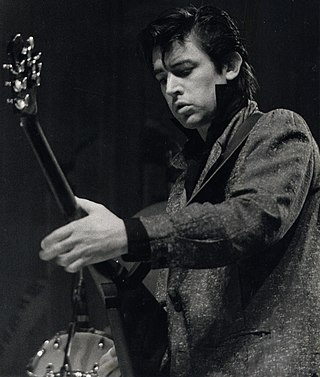
Christopher John Spedding is an English guitarist and record producer. In a career spanning more than 50 years, Spedding is best known for his studio session work. By the early 1970s, he had become one of the most sought-after session guitarists in England. Spedding has played on and produced many albums and singles. He has also been a member of eleven rock bands: the Battered Ornaments, Frank Ricotti Quartet, King Mob, Mike Batt and Friends, Necessaries, Nucleus, Ricky Norton, Sharks, Trigger, and the Wombles. In May 1976, Spedding also produced the first Sex Pistols recordings.

Diamond Dogs is the eighth studio album by the English musician David Bowie, released on 24 May 1974 through RCA Records. Bowie produced the album and recorded it in early 1974 in London and the Netherlands, following the disbanding of his backing band the Spiders from Mars and the departure of producer Ken Scott. Bowie played lead guitar on the record in the absence of Mick Ronson. Diamond Dogs featured the return of Tony Visconti, who had not worked with Bowie for four years; the two would collaborate for the rest of the decade. Musically, it was Bowie's final album in the glam rock genre, though some songs were influenced by funk and soul music, which Bowie embraced on his next album, Young Americans (1975).
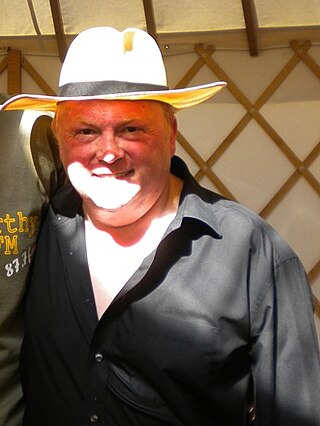
Michael Philip Batt, LVO is an English singer-songwriter, musician, arranger, record producer, director, and conductor. He was formerly the Deputy Chairman of the British Phonographic Industry.
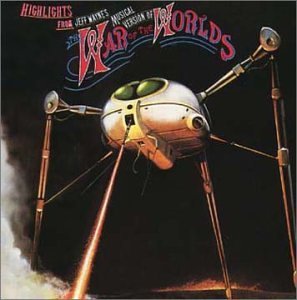
Highlights from Jeff Wayne's Musical Version of The War of the Worlds is a 1981 compilation album by Jeff Wayne, highlights of the 1978 concept album, retelling the story of the 1898 novel The War of the Worlds by H. G. Wells. It was released by Columbia Records.

The Vibrators are a British punk rock band that formed in 1976.

"Rock 'n' Roll Suicide" is a song by the English singer-songwriter David Bowie, originally released as the closing track on the album The Rise and Fall of Ziggy Stardust and the Spiders from Mars on 16 June 1972. Co-produced by Ken Scott, Bowie recorded it with his backing band the Spiders from Mars – comprising Mick Ronson, Trevor Bolder and Mick Woodmansey. It detailed Ziggy's final collapse like an old, washed-up rock star and, as such, was also the closing number of the Ziggy Stardust live show. In April 1974 RCA issued it as a single.
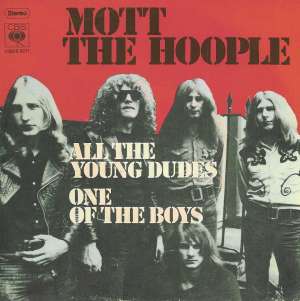
"All the Young Dudes" is a song written by English singer-songwriter David Bowie, originally recorded and released as a single by the English rock band Mott the Hoople in 1972 by Columbia Records. Bowie produced the song, which he had given to the band after they rejected his "Suffragette City". Bowie would subsequently record the song himself. Regarded as an anthem of glam rock, the song has received acclaim and was a commercial success. In 2021, Rolling Stone ranked "All the Young Dudes" number 166 in its list of the 500 Greatest Songs of All Time. It is also one of the Rock and Roll Hall of Fame's 500 Songs that Shaped Rock and Roll.

"Velvet Goldmine" is a song by the English singer-songwriter David Bowie. A glam rock number with lyrical references to oral sex, it was originally recorded on 11 November 1971 at Trident Studios in London during the sessions for his 1972 album The Rise and Fall of Ziggy Stardust and the Spiders from Mars. It was ultimately left off the album and subsequently released as a B-side of the UK re-release of "Space Oddity" in 1975. Praised by biographers as an undervalued classic, it later appeared on compilation albums, including on Re:Call 1, part of the Five Years (1969–1973) boxed set, in 2015. Its namesake was used for Todd Haynes's 1998 film of the same name.

Trouble in Shangri-La is the sixth studio album by American singer-songwriter Stevie Nicks. Released in 2001, it was her first new solo album since 1994's Street Angel. The album debuted at number five on the Billboard 200, Nicks' highest peak since 1983's The Wild Heart, with sales of 109,000 copies in its first week. The album remained in the top 10 in its second week holding the #9 spot and sold 76,000 copies. The album spent a total of 20 weeks on the Billboard 200. It achieved Gold status within six weeks of its release for shipping 500,000 copies in the U.S. As of February 2011, the album has sold over 663,000 copies in the US. Three singles were released: "Every Day", "Planets of the Universe", and "Sorcerer".
Gary Osborne is an English singer and songwriter. He chaired The Songwriters Executive of the British Academy Of Songwriters Composers and Authors for 12 years during which time he was also chairman of The Ivor Novello Awards.

Ziggy Stardust and the Spiders from Mars is a 1979 British documentary/concert film by D. A. Pennebaker. It features English singer-songwriter David Bowie and his backing group the Spiders from Mars performing at the Hammersmith Odeon in London on 3 July 1973, the final date of his Ziggy Stardust Tour. At this show, Bowie made the sudden surprise announcement that the show would be "the last show that we'll ever do", later understood to mean that he was retiring his Ziggy Stardust persona.
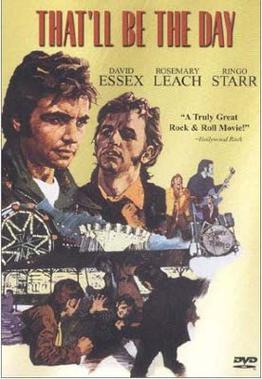
That'll Be the Day is a 1973 British coming of age drama film directed by Claude Whatham, written by Ray Connolly, and starring David Essex, Rosemary Leach and Ringo Starr. Set primarily in the late 1950s and early 1960s, it tells the story of Jim MacLaine (Essex), a British teenager raised by his single mother (Leach). Jim rejects society's conventions and pursues a hedonistic and sexually loose lifestyle, harming others and damaging his close relationships. The cast also featured several prominent musicians who lived through the era portrayed, including Starr, Billy Fury, Keith Moon and John Hawken. The film's success led to a sequel, Stardust, that followed the life of Jim MacLaine through the 1960s and 1970s.

Stardust is a 1974 British musical drama film directed by Michael Apted and starring David Essex, Adam Faith, and Larry Hagman. It is the sequel to the 1973 film That'll Be the Day, which introduced the characters of Jim MacLaine and his street-smart friend Mike Menary. It chronicles Jim's rise and fall as an international rock star during the 1960s and early 1970s, with Mike as his personal manager. It features a number of pop/rock performers, including Essex, Faith, Keith Moon, Marty Wilde, Dave Edmunds, Paul Nicholas and Edd Byrnes.
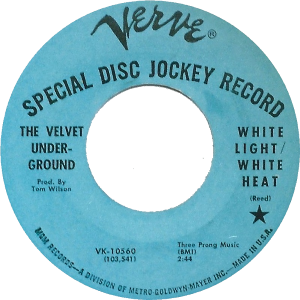
"White Light/White Heat" is a song recorded by the American rock band the Velvet Underground. It was released as a single in late November 1967 with the B-side "Here She Comes Now". The following year it appeared as the title track on their second studio album of the same name.

Sharks are a British rock band formed in 1972 by bassist Andy Fraser upon his departure from Free. They were signed to Island Records and were highly rated by critics, especially for Chris Spedding's guitar work.

"Rock On" is a song written by English singer David Essex. Recorded in 1973 and released as a single by Essex, it became an international hit. In 1989, American actor and singer Michael Damian recorded a cover version that went to number one on the Billboard Hot 100 chart. The song has been recorded many times, including a 2006 version by the English hard rock group Def Leppard.

David Essex is the second studio album by British singer David Essex. It was released at the end of September 1974 and was produced, arranged and conducted by Jeff Wayne. It peaked at number two on the UK Albums Chart and was the Christmas number two album that year.

Jeff Wayne's Musical Version of The War of the Worlds – The New Generation is a 2012 concept album by Jeff Wayne and is a re-working of his 1978 concept album, retelling the story of the 1898 novel The War of the Worlds by H. G. Wells. As previously, the music format is predominantly progressive rock and string orchestra, but with synthesizers playing a more prominent role. The music is intermixed with re-voiced narration and leitmotifs to carry the story forward via rhyming melodic lyrics that express the feelings of the various characters. Due to the consistent popularity of the original album, Wayne decided to return to his score and re-create it for a new generation of audiences, as well as re-launch a live tour throughout the United Kingdom and Europe.



















